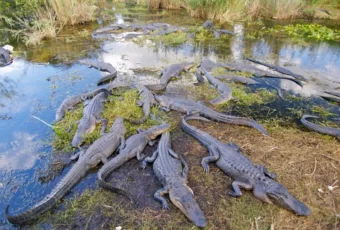Coming From Different Worlds
Married couple Aaron and Rachel Halbert grew up in completely different worlds. While Rachel had a typical upbringing in the Mississippi Delta, Aaron grew up living in Honduras with his parents who were evangelical missionaries. He had become very familiar with racial diversity, being the only blond and blue-eyed child in the town where he grew up. That was not the case with Rachel, until she learned about missionary life and embarked on the journey…
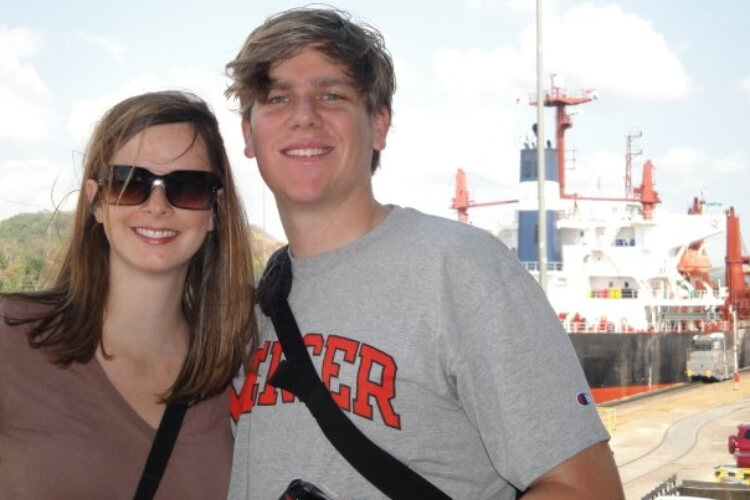
Coming From Different Worlds
A Successful Blind Date
In 2004, Rachel and Aaron were set up on a blind date. They quickly fell for one another, especially since they seemed to share many values and both were looking forward to marriage and children. They’re also both passionate about their faith, which truly brought them together.
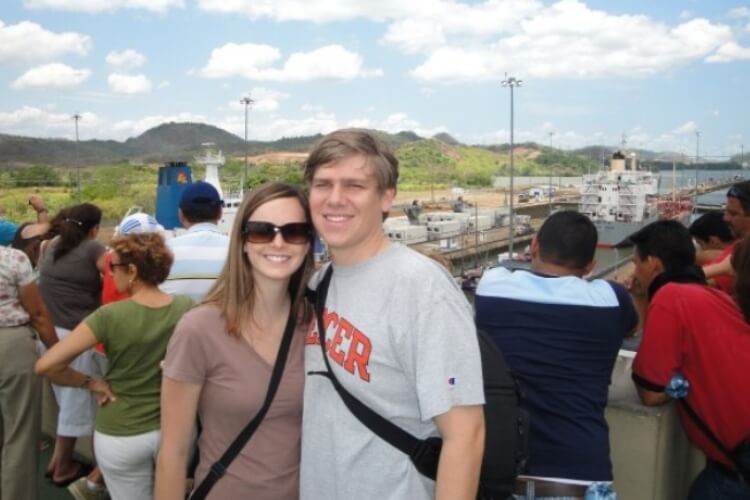
A Successful Blind Date
They Took It Slow
The pair began to travel together on missionary trips, which helped them bond and grow closer. When the realized that they both wanted to adopt children, they knew that they were a great match. Aaron said in an interview with the Washington Post: “When we were still dating, a common bond that drew us together was the fact that Rachel and I both wanted to adopt.”
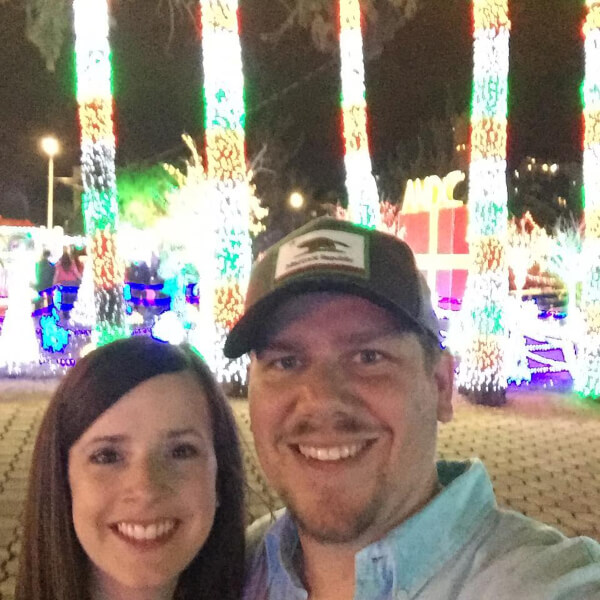
They Took It Slow
Plans For The Future
Despite the fact that they were fertile and able to conceive children naturally, they both felt compelled to adopt instead. On their reasoning, Aaron commented: “While we were fertile, we were both deeply convicted that one of the ways to be pro-life is to involve ourselves in adoption.” Once they realized they were on the same page, Aaron decided to propose. Of course, Rachel said “yes!”
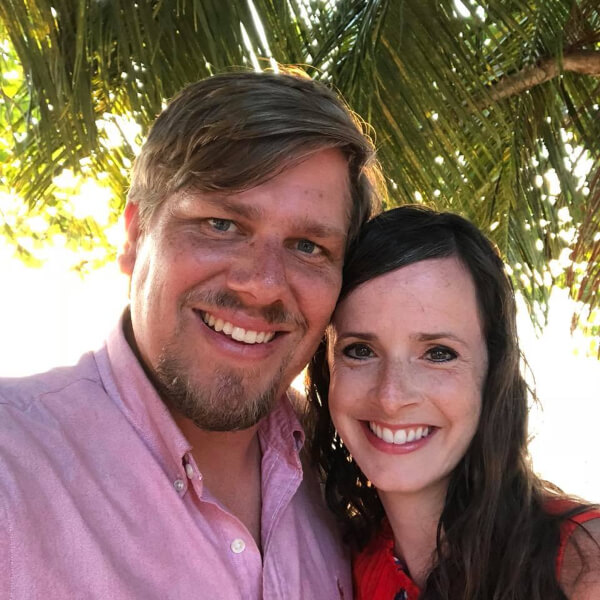
Plans For The Future
Wedding Bells
In 2006, Aaron and Rachel officially tied the knot. They knew shortly after they got married that they wanted to become parents. However, they ultimately decided that it would be best to wait, as their missionary work was demanding and required so much of their time and dedication.
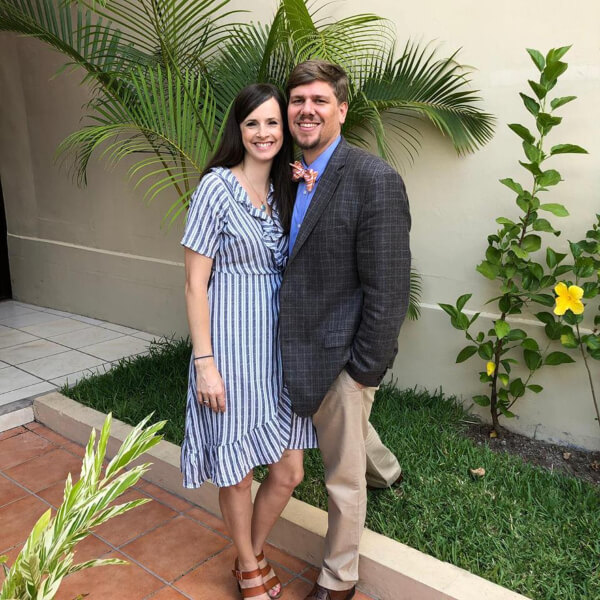
Wedding Bells
A New Mission
The newlyweds were then faced with a proposition: they were asked to move to Honduras on a mission trip. The agreed, and were soon on their way to Aaron’s hometown in Honduras. Rachel was nervous but excited to see where Aaron spent his adolescence. The missionaries in the Tegucihalpa region typically work as English teachers. When the pair arrived, they noticed the degradation that had happened in the area.
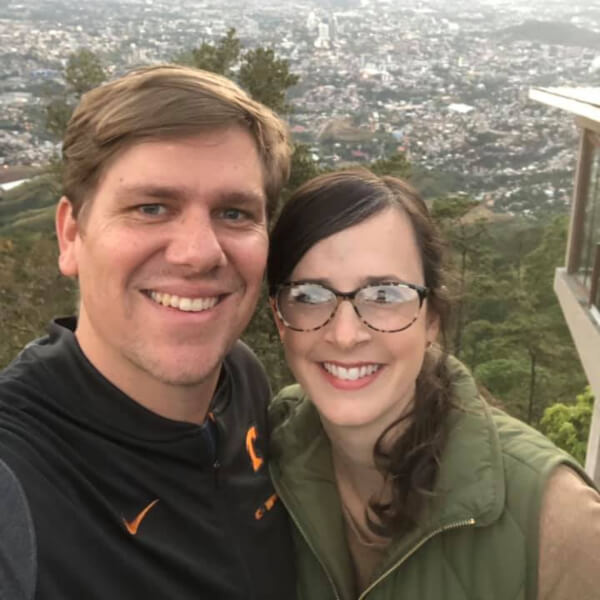
A New Mission
Wrapping Up
Throughout the months that they spent in Honduras, they voiced their concerns for the things they were seeing. Their biggest goal was enforcing the gospel at the local churches. However, their time had ended, and they knew that back home in Mississippi there were more challenges and adventures waiting for them.
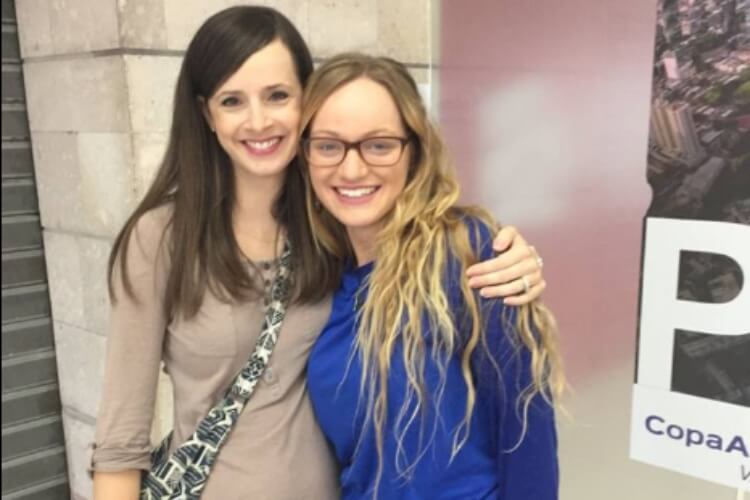
Wrapping Up
Heading Home
Once they settled back home in Mississippi, Aaron figured out that he wanted to pursue a Master of Divinity. He began his studies at the Reformed Theological Seminary in Jackson, Mississippi. Though they felt at home in the States, they constantly missed Honduras. After a few years, the pair began to think about growing their family. But would they adopt or conceive naturally?
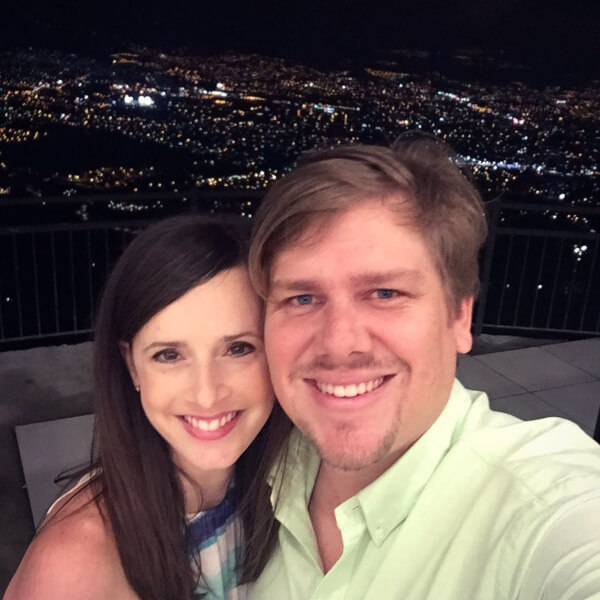
Heading Home
Their Community
Aaron and Rachel were very active members of their community. Aaron began an internship and was eventually the youth directed at the Second Presbyterian in Yazoo City, while Rachel was teaching at a school locally. They eventually decided on adopting. Aaron explained: “We see the protection of children not as charity, nor as part of a political agenda, but as something near to the heart of God.”
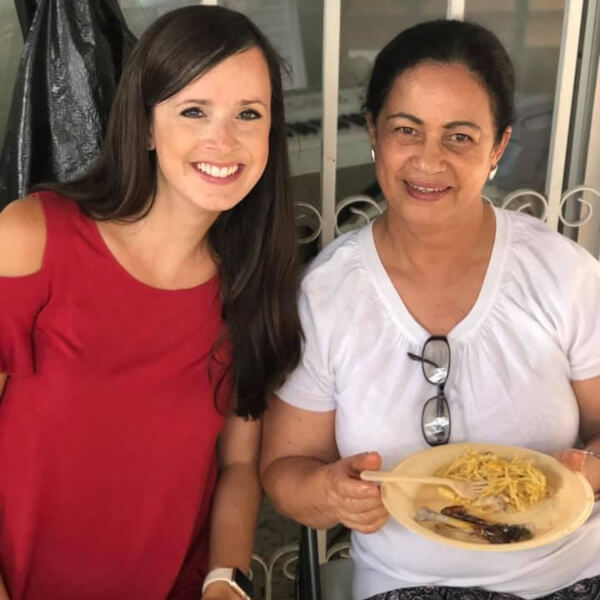
Their Community
Getting Ready
The couple decided it was also time for another missionary trip to Honduras. They did so on a mission with the Presbyterian Church of America. While they still hadn’t completely ruled out conceiving themselves, they decided to visit a local adoption agency.
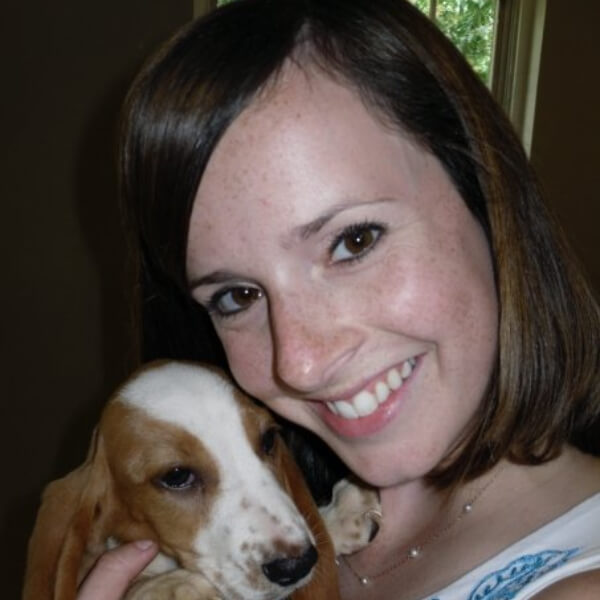
Getting Ready
Their Reasoning
Once they arrived at the adoption center, they knew that this was the choice for them. They also knew the fact that non-Caucasian children typically have a harder time getting adopted. This is why they specifically chose to only adopt children who are not Caucasian.
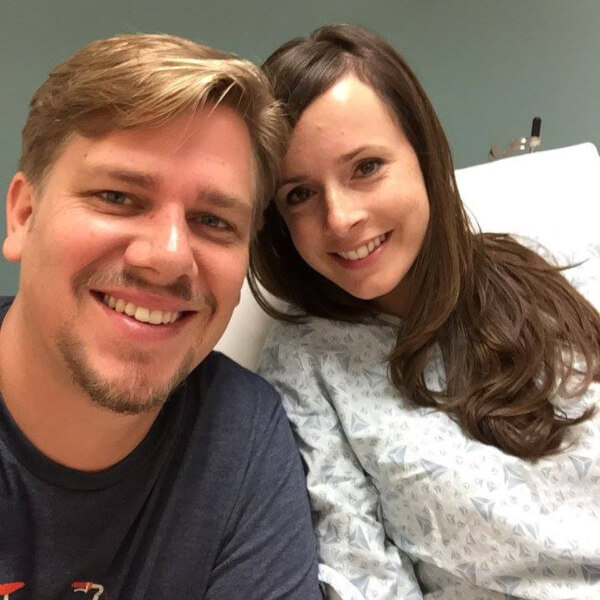
Their Reasoning
Practice What You Preach
Aaron explained their choice: “We did this with the deeply held conviction that if the Lord wanted us to have a fully Caucasian child my wife would conceive naturally.” For Aaron and Rachel, it is important to practice wha they preach, and so they felt that this was the right decision for them to make.
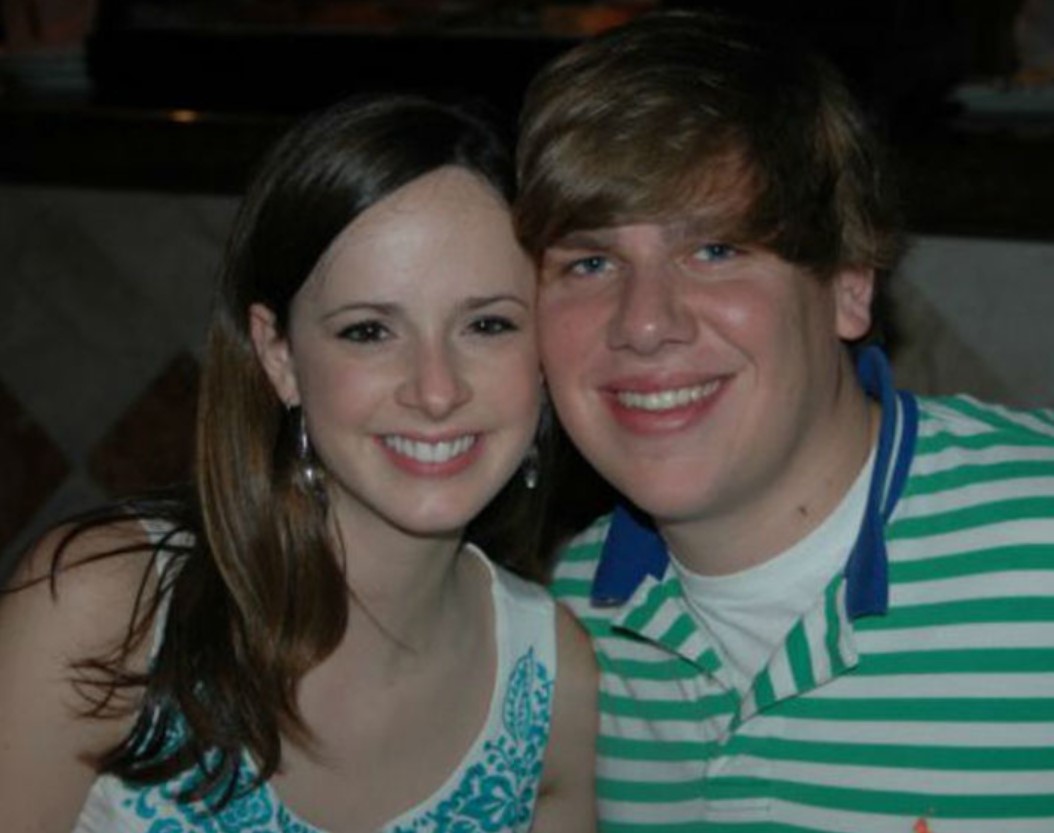
Practice What You Preach
Adopting The Kids
They decided to go ahead with the adoption process, and they met two adorable children who they eventually adopted as their own. Ford and Catherine joined their family and Aaron and Rachel couldn’t have been happier. However, they were aware of the fact that they would all face struggles for being a mixed-race family. However, the Halberts were ready to face anything for their children.
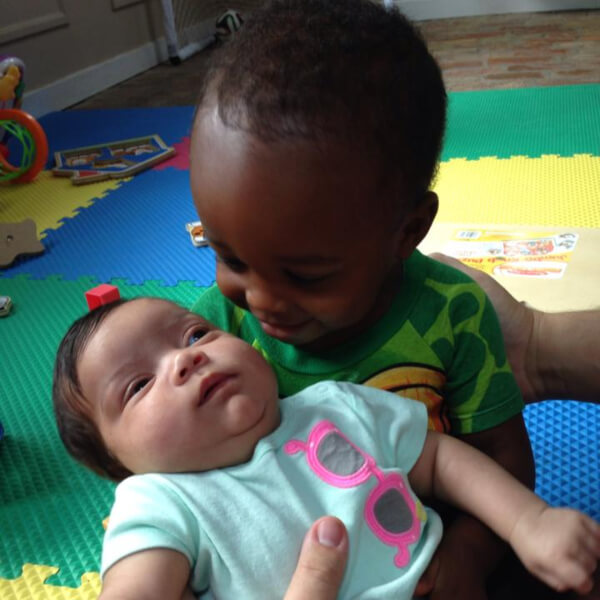
Adopting The Kids
Expanding The Family
It didn’t take much time after they adopted the first two kids that they knew that they wanted more kids. They were hesitant at first, after all, they had two young kids, so maybe the timing was not right. However, a friend of theirs mentioned embryo adoption and their interest was piqued. They had never heard of it before, so they decided to do some research.
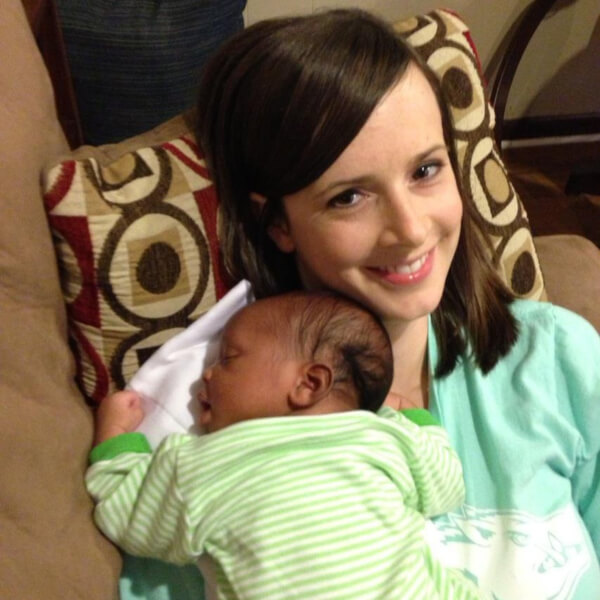
Expanding The Family
Exploring Embryo Adoption
Aaron and Rachel were completely stunned with what they learned in their research. Aaron explained: “We live in a world with hundreds of thousands of embryos frozen in the United States alone. Most who aren’t selected by their biological parents are donated to science or destroyed or kept frozen.” Viable embryos were simply being destroyed. The couple decided to act…
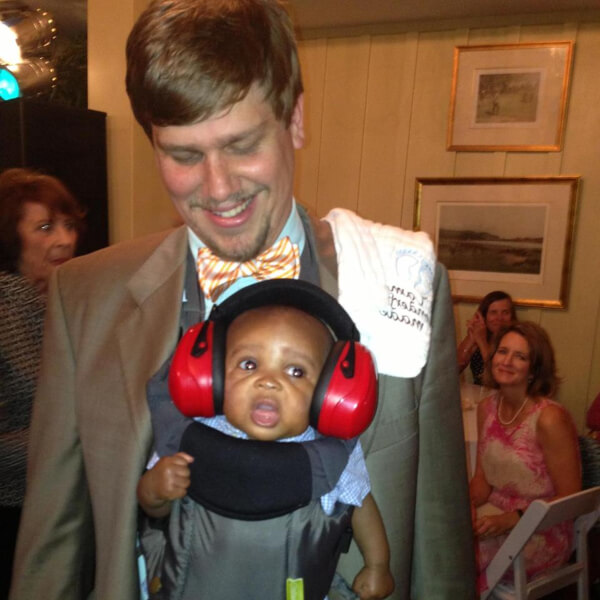
Exploring Embryo Adoption
Moving Forward
After finding out about embryo adoption, Aaron and Rachel knew that they were interested. This way, they could adopt, but Rachel could still carry the baby herself. It seemed like they had stumbled upon the perfect solution! They knew that this was the right move for them as a family.
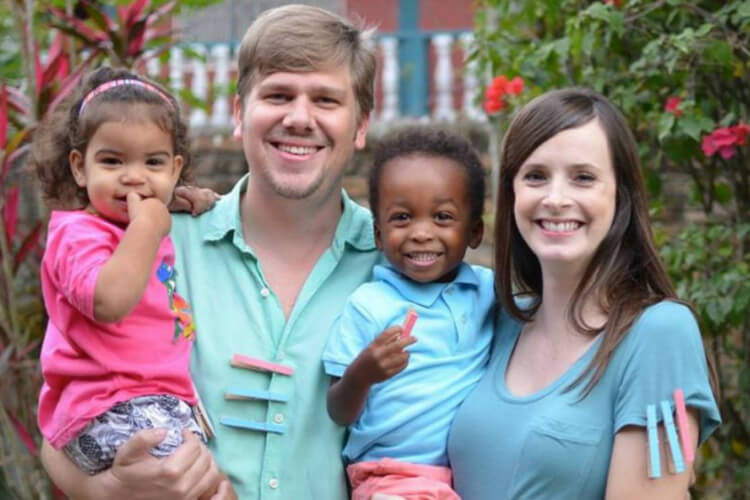
Moving Forward
Why It Made Sense
Aaron and Rachel were fully aware that their unconventional decision would raise some questions. However, they believed that their religious beliefs back up their choice. Aaron explained their decision: “If Christians – or others – really believe life begins at conception, it follows that we should respond by being willing to support embryo adoption and even take part in it ourselves.”
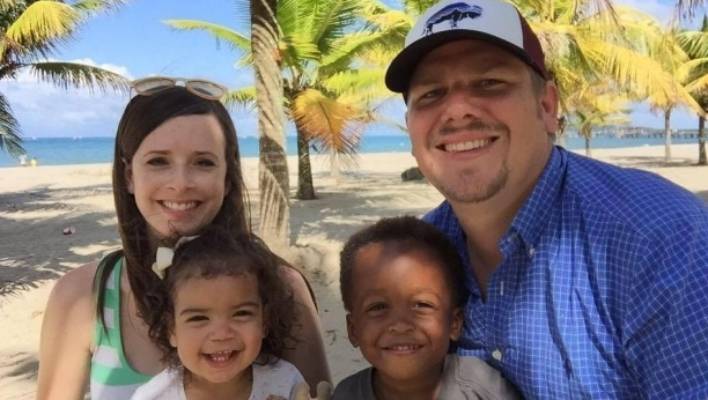
Why It Made Sense
Not A Simple Process
Although she and Aaron were quite excited about the journey ahead, naturally Rachel was also very nervous. She underwent many procedures in order to prepare for the embryo implantation. Luckily, everything went smoothly and in 2015, the IVF process began. All they had to do now was wait and see if the embryo took…
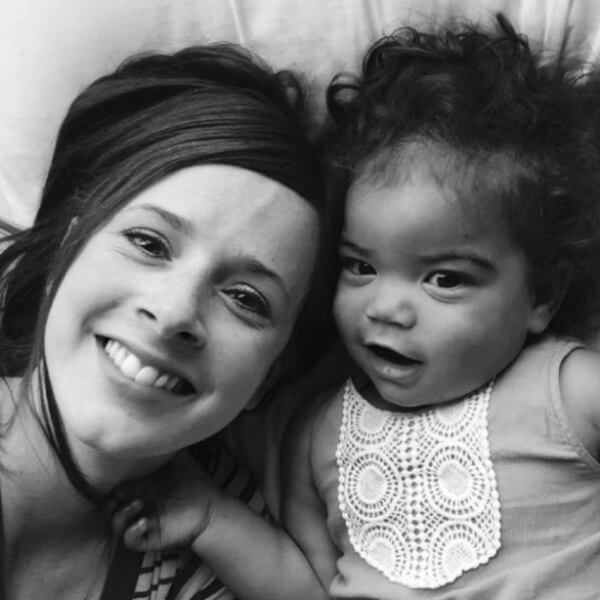
Not A Simple Process
What Are The Odds?
Embryo adoption is just like any other IVF process, so the same set of obstacles are faced by couples going through this process. Rachel went through months of hormone treatments in order to gain a 10% chance of implantation success. Each attempt costs around $10,000-$15,000, so they could not have endless tries.
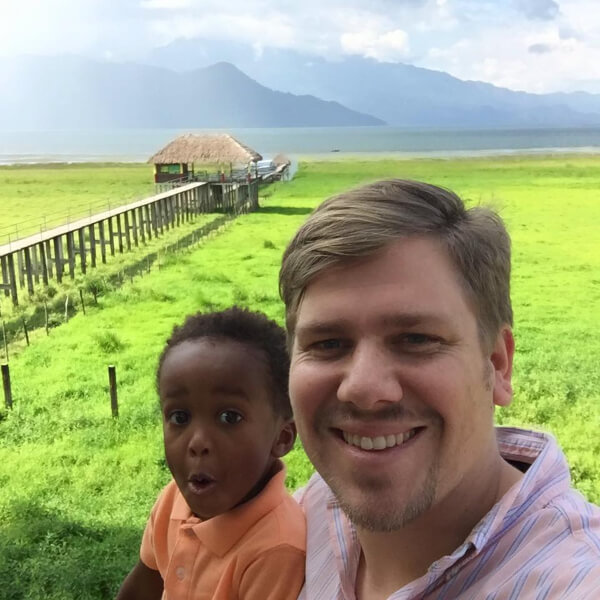
What Are The Odds?
Checking In
Throughout this whole process, the couple was also in the process of preparing for their return to Honduras. In the middle of the process, they made their move. Six weeks after the implementation, they went to a local hospital to find out if it was successful. Through their broken Spanish, they communicated with the doctor. So what was the result?
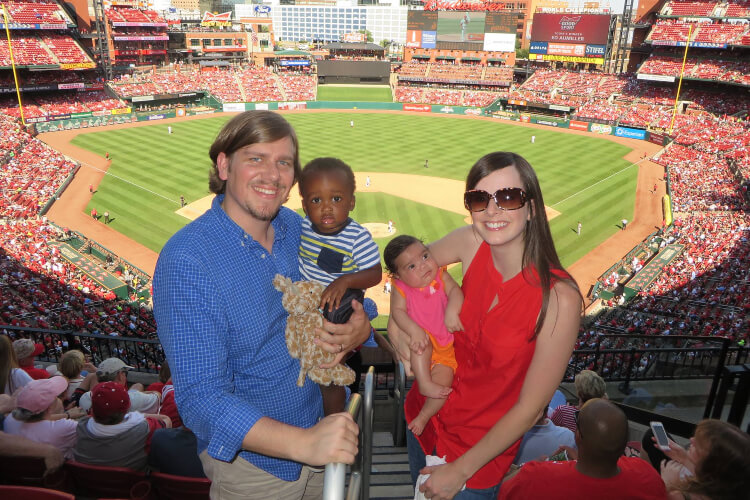
Checking In
He Was Still Questioning
The doctor seemed a bit puzzled when he looked at the results. He was very familiar with the IVF process, but something seemed a bit strange to him. He asked them again if they were sure that just two embryos were transferred. They assured him that was the case, and he finally gave the wonderful news that the procedure had succeeded.
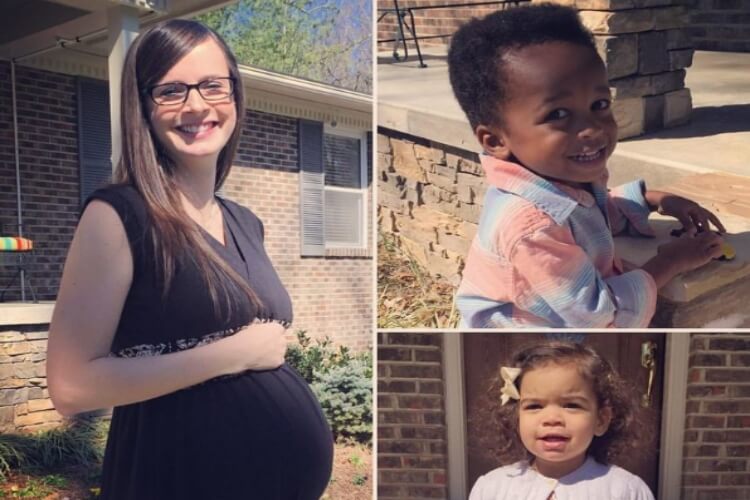
He Was Still Questioning
What Was Going On?
Despite the wonderful news, it was still unclear why the doctor was so puzzled at first, and soon they realized why. After giving them the happy news that the embryo implantation had successfully taken, he shared another life-changing piece of news…

What Was Going On?
And Then There Were Three
The Honduran doctor pointed out something astounding in the ultrasound. Not only was the procedure successful, but Rachel was actually pregnant with triplets! That meant that this family was going to grow from four to seven. They were shocked but ecstatic, and felt that God was behind the whole ordeal.
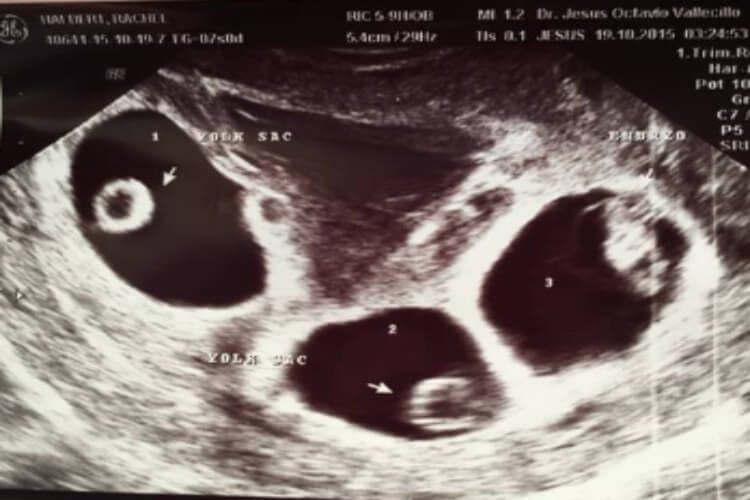
And Then There Were Three
Their Little Miracles
Aaron and Rachel were thrilled, and they couldn’t wait to tell Ford and Catherine. Aaron shared: “I felt sheer delight during this pregnancy watching my son and daughter, with his dark brown skin and her with the ringlet hair and slightly tan skin, kiss my white wife’s growing belly. Each evening they said goodnight to those three growing little girls in her belly.”
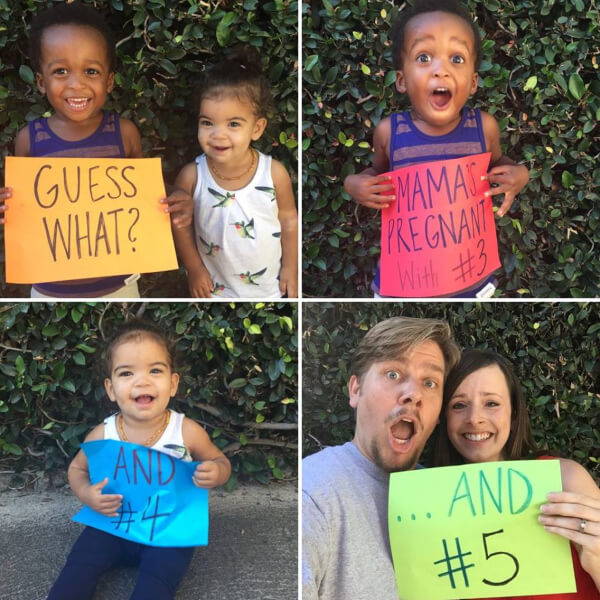
Their Little Miracles
A Blessing
In 2016, the Halbert family finally grew to seven as they welcome Whitley, Ryley, and Anne Waverly. Aaron excitedly shared: “Oh, how thankful we are for God blessing us with these sweet little ones He has placed in our care. As I look at my growing family, I prefer to take it a step further, daring to hope that our family picture is a little hint of Heaven.”
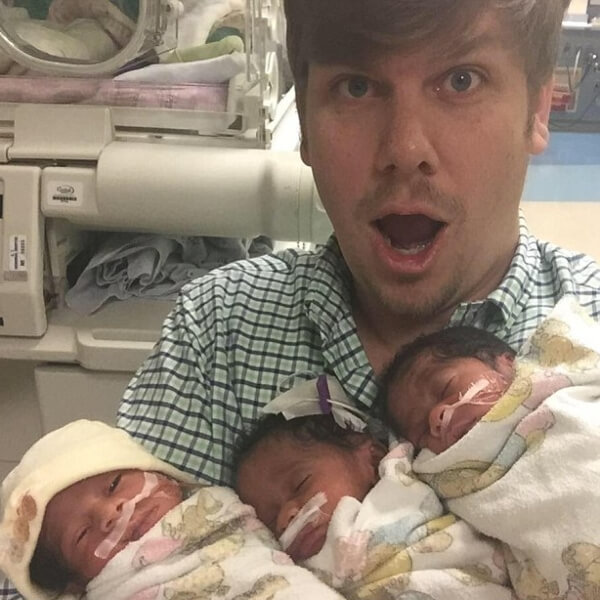
A Blessing
An Interracial Family
On the fact that they are an interracial family, Aaron said: “The beauty of a multi-ethnic family is found there, in the fact that the differences are the very thing that makes ours richer and fuller. It forces you to think in a new way about the way you think, speak, act and live. There is something beautiful and enriching being the only white face sitting and chatting with some of my African-American friends as my son gets his hair cut on a Saturday morning.”
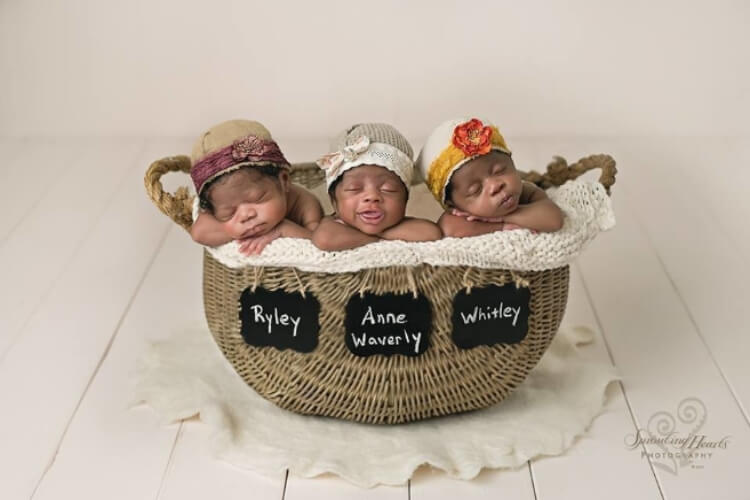
An Interracial Family
The Overwhelming Support
The couple was showered with a lot of support. Aaron said: “It’s been heartening to see virtually all of our friends and family express overwhelming support for our family and the unusual ways we’ve built it. In our minds, we are just living out our dream. A dream that may not look like the average family, but one that we are thankful could come true in light of our country’s history.”
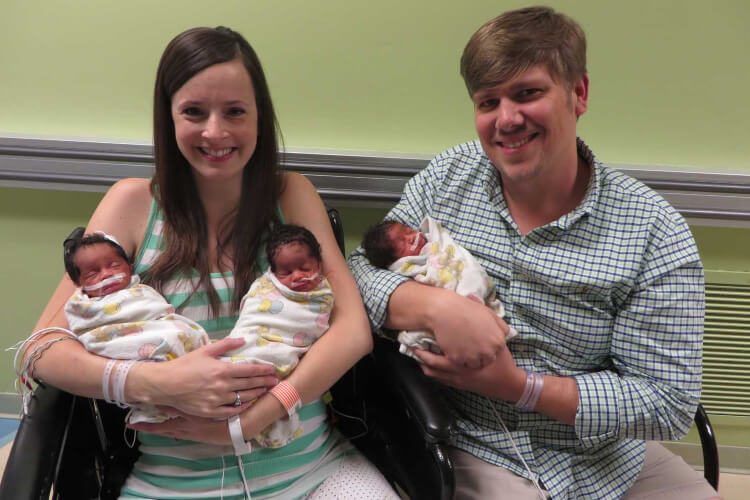
The Overwhelming Support
People’s Reactions
Despite the overwhelming support, still some people were critical of their choice. Aaron explained: Their decisions were frowned upon by some. “We knew, especially in the South, that a white couple with non-white children would draw a myriad of different reactions. There will always be the older white woman in Walmart who stared at us with sheer disgust or the African-American mother who looked at us and just shook her head.”
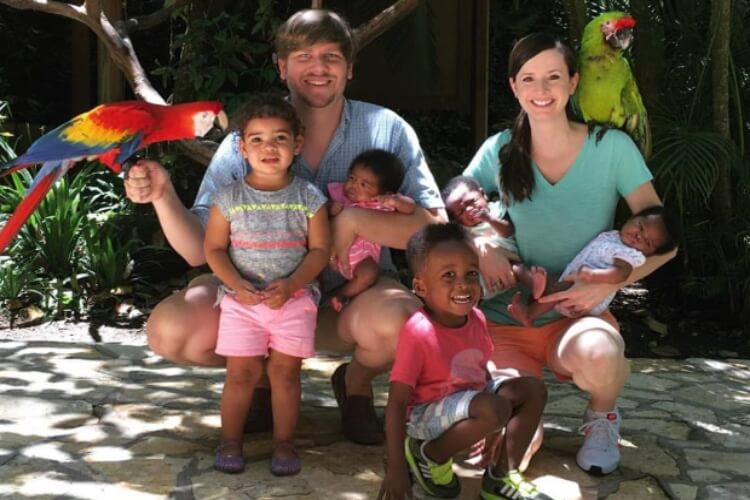
People’s Reactions
More Unpleasantness
Aaron continued sharing some unpleasant experiences they’ve gone through. He said: “There was also the young black girl who wept when we told her this little boy with her skin color was our son, and the older white doctor who lovingly prayed over him and held him so tenderly.”
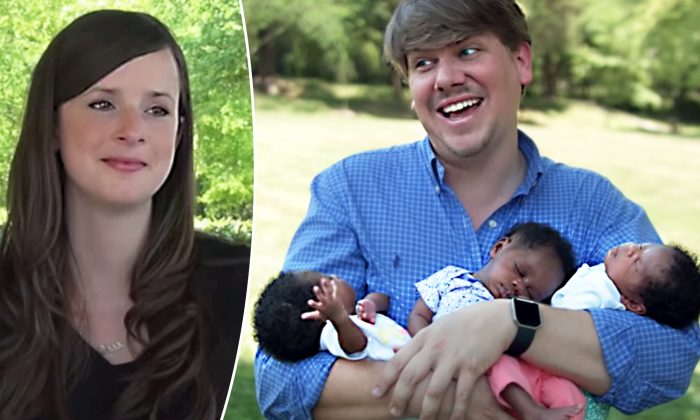
More Unpleasantness
What They Think
They know that their family is unconventional, but they really do not care about what people think. Aaron said: “One of the central themes of Christianity is, after all, that God, through His Son, is calling people from every tongue, tribe, and nation. Grasping diversity will make the world stronger as we marvel at God’s creative genius on display through His people’s varying pigments, personalities, and proficiencies. Our differences are cause for celebration, not scorn.”
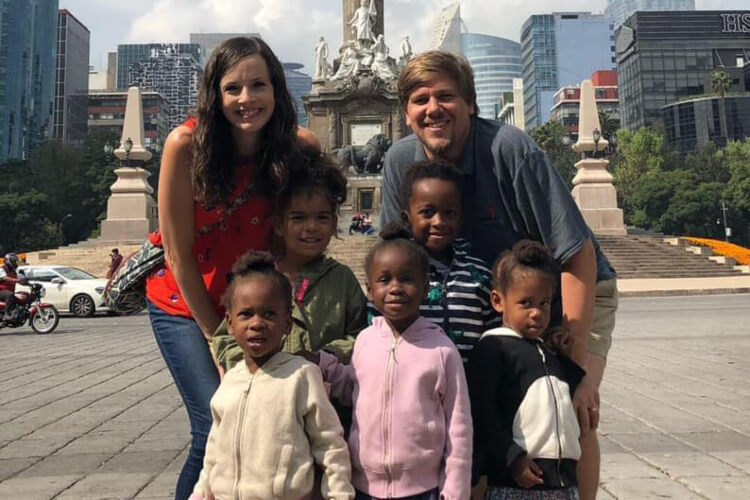
What They Think
The Complex Reality
Rachel also weighed in: “Embryo adoption can also be very difficult for the donor family. I know the decision to donate your frozen embryos for adoption is probably the hardest you’ll ever make. It can be so painful to know that someone else is raising your biological children. For some reason, whether medical or family size or financial or age, you are unable to have any more transfers.”
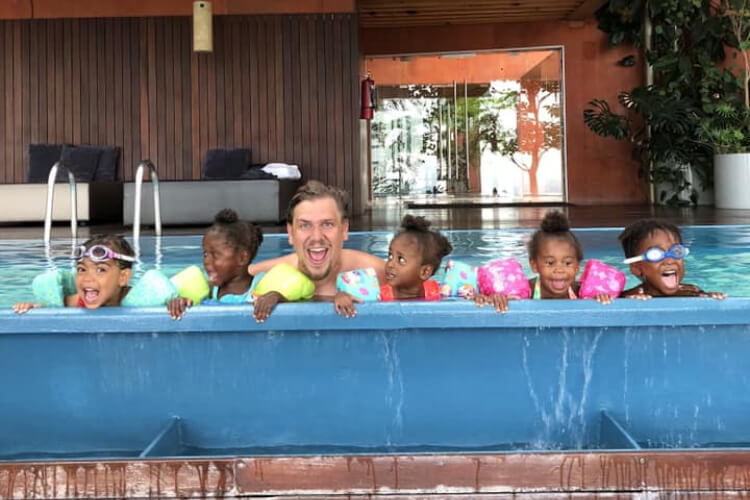
The Complex Reality
Sharing Their Experience
While embryo adoption is not the right choice for everyone, Rachel and Aaron could not be happier that they decided to go down this route. Rachel described the whole experience as “beautiful and unique” and admire the “brave and selfless” biological parents that donate the embryos.
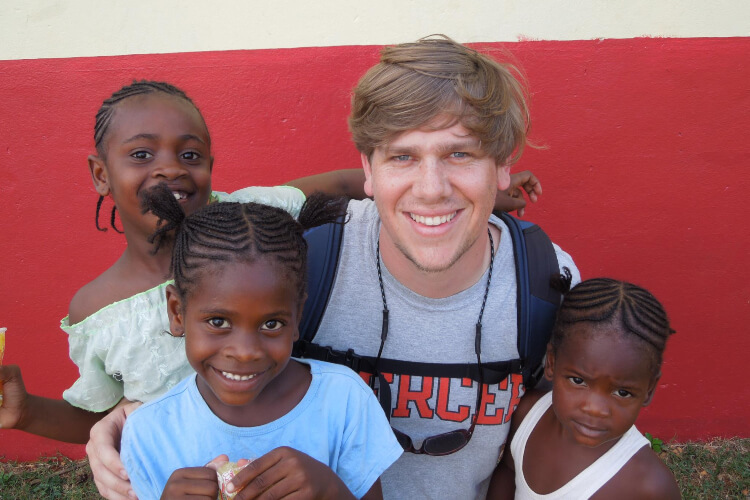
Sharing Their Experience
The Importance Of Embryo Adoption
Aaron and Rachel believe that embryo adoption is just as important as traditional adoption. They know that it is not even a well-known process, which is why so many embryos remain neglected for so long. Their very own embryos had been waiting for 12 years before Aaron and Rachel adopted them!
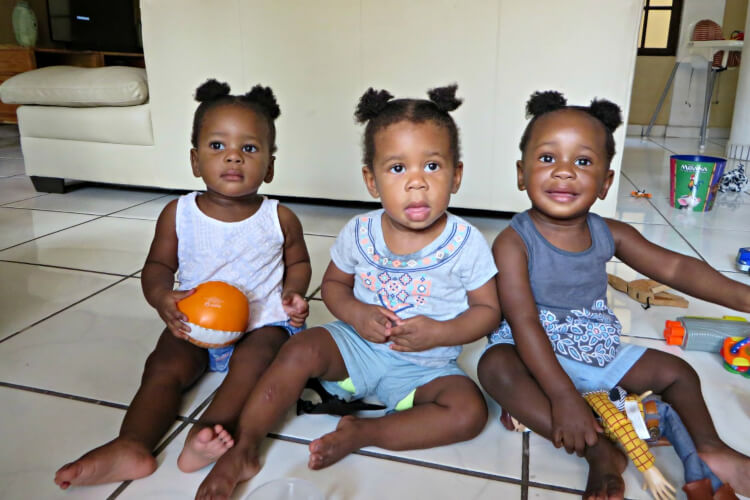
The Importance Of Embryo Adoption
Everyone Deserves A Chance
Rachel said: “We were not saying that those lives are any more important than the lives of the babies and children waiting to be adopted all across the world. No, they are not any more important, but they are no less important either. All of our children’s lives are valued.”
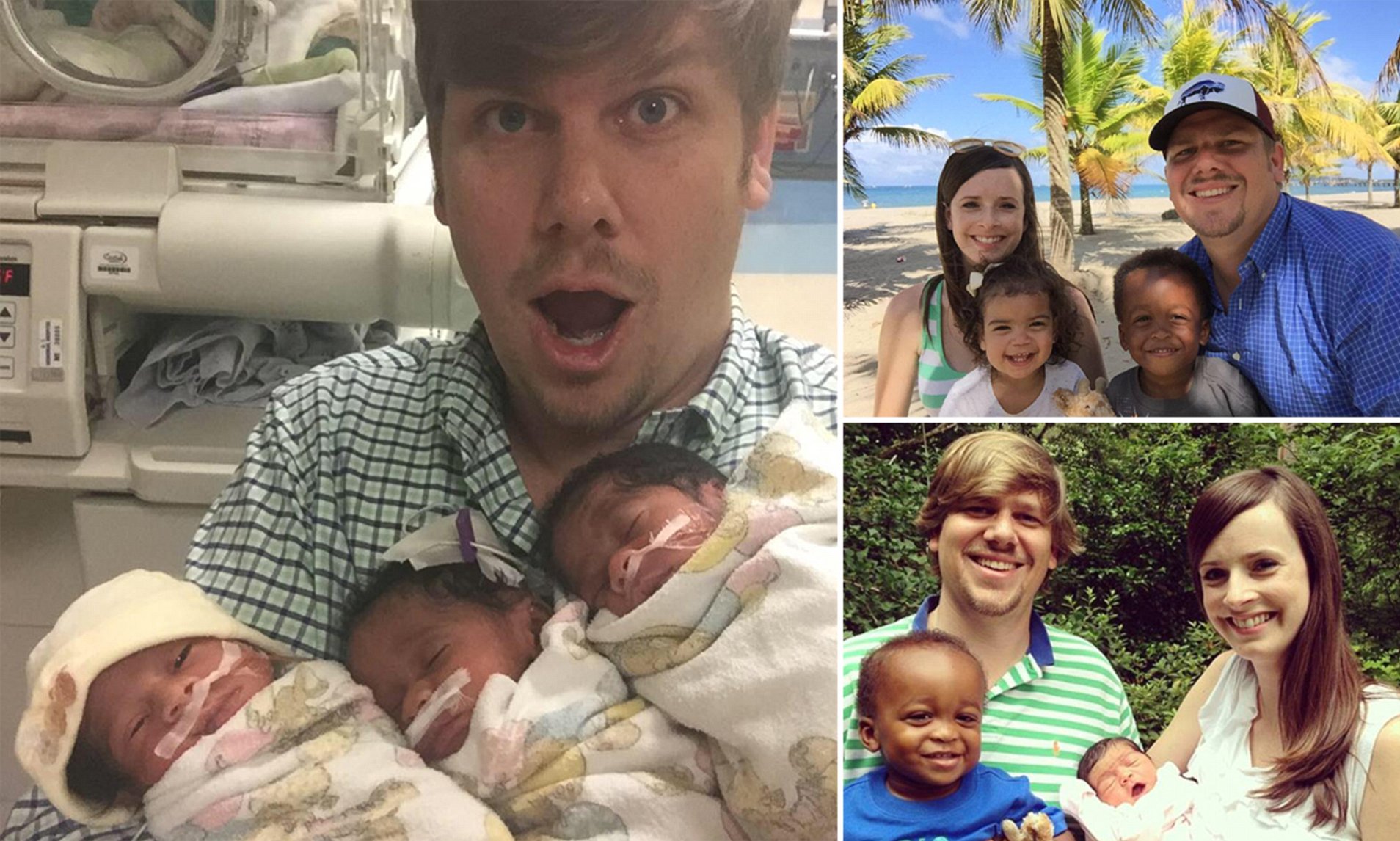
Everyone Deserves A Chance
Having Five Kids
Any mother will tell you just how time consuming having children is. For Aaron and Rachel, things get pretty hectic trying to balance the needs of five children. While their house is always busy, Rachel is grateful and loves raising the children. She absolutely loves being a mother and wouldn’t change a thing.
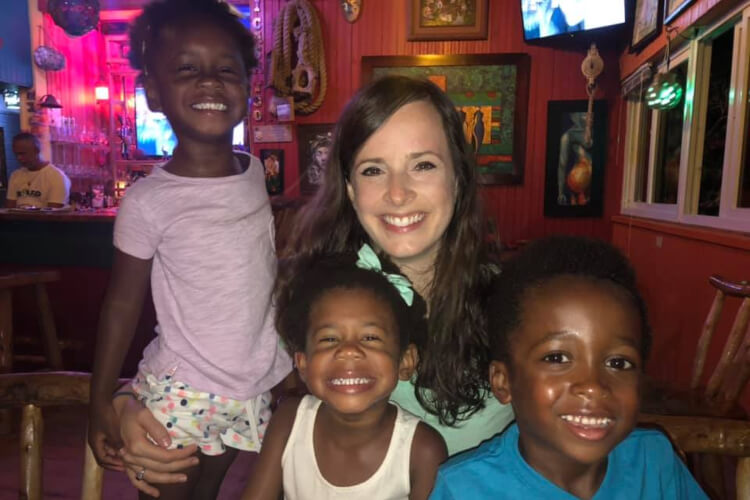
Having Five Kids
Life As Mom
She shared: “I would imagine that my life as mom looks a whole lot like the life of any mom. My days are filled with feeding five hungry kiddos, changing lots of diapers, tending to household duties, shepherding little hearts, loving on and playing with all five, doing/learning how to do hair of four beautiful girls and one handsome little guy, and finding a minute or two to eat some food myself.”
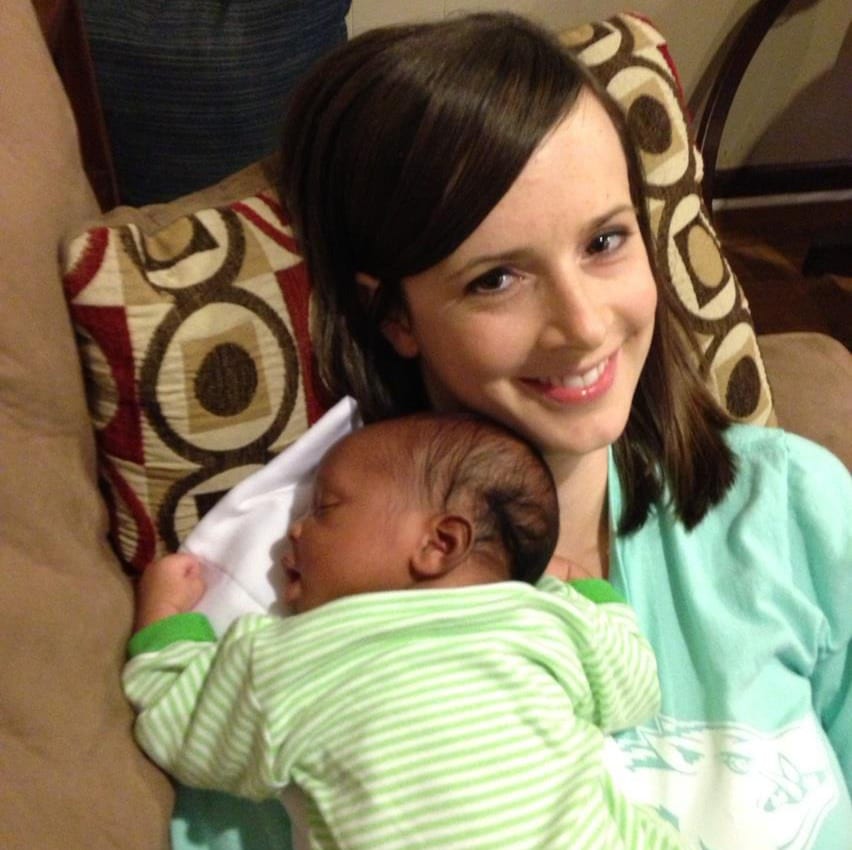
Life As Mom
Their Family Unit
The Halberts walked into the adoption process with open minds and hearts, and that’s why they believe they were given so many blessings in return. Rachel always had wanted four or five children, she just had no idea it would all happen so quickly. As every day passes, their love for their children continues to grow. They are making sure to instill the values and morals that are so important to them. This family is truly bound together with endless love.
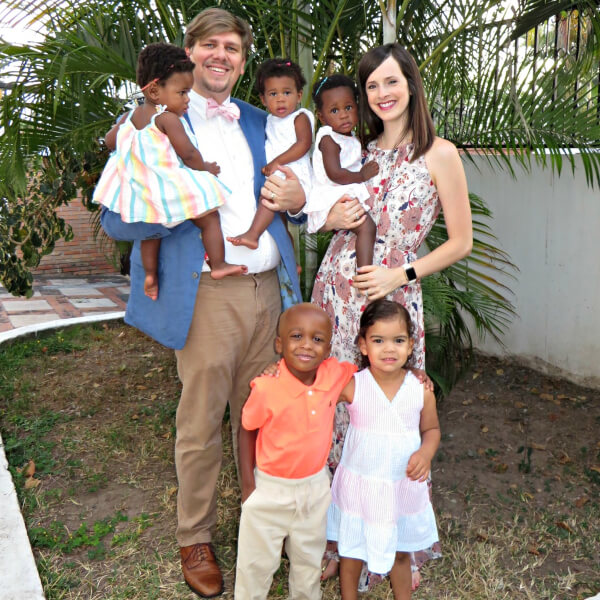
Their Family Unit
Looking To The Future
When asked if they want more children, Rachel replied: “We’ll see what the future holds. For now, we are enjoying this phase of life right now.” While they are extremely happy, they definitely have their hands full with five little ones! The Halberts hope that their story will help inspire others to look into embryo adoption.
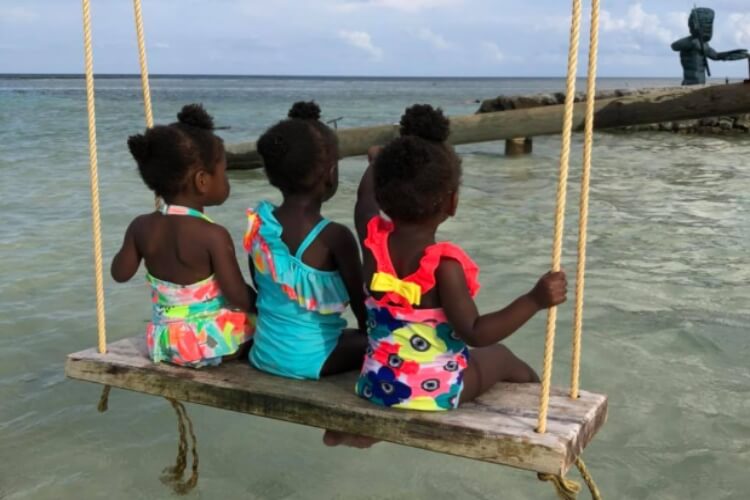
Looking To The Future
Where They Are Now
Even though they are quite busy with the kids, Aaron and Rachel decided to pursue another move to Honduras. They moved back to Tegucigalpa and focus on giving back to the community. They share their parenting responsibilities, but in order to make things a bit easier, Rachel has transitioned to being a full-time mom.
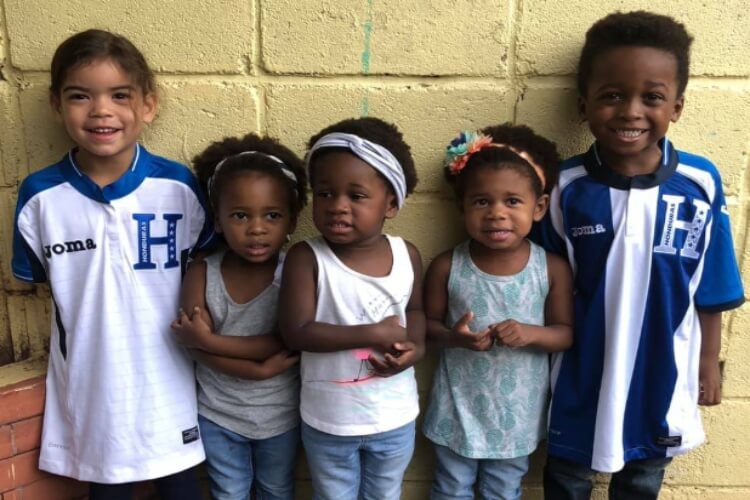
Where They Are Now
Growing Up Multicultural
Their children are fortunate to have a unique and enriching experience of growing up in both Honduras and the United States. The family is interracial and their experience are multicultural as well, so they will be very well-rounded with experiences around all sorts of different people, which is always wonderful.
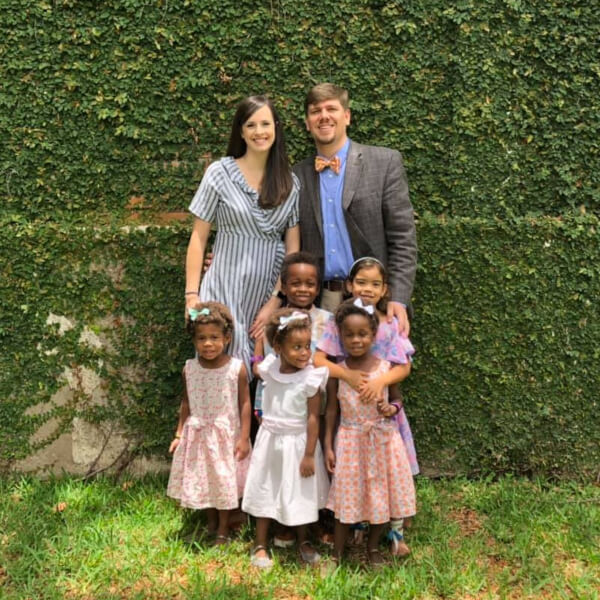
Growing Up Multicultural



